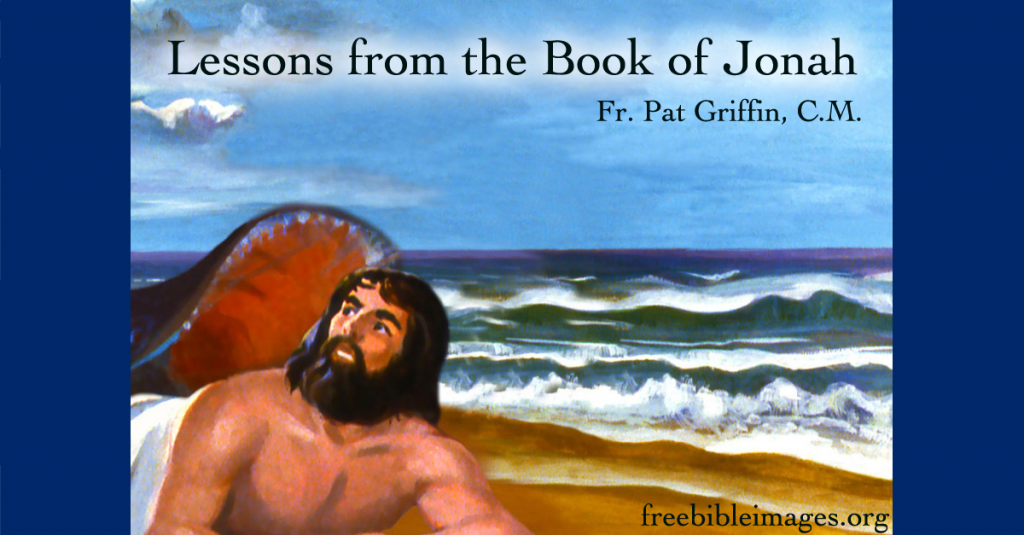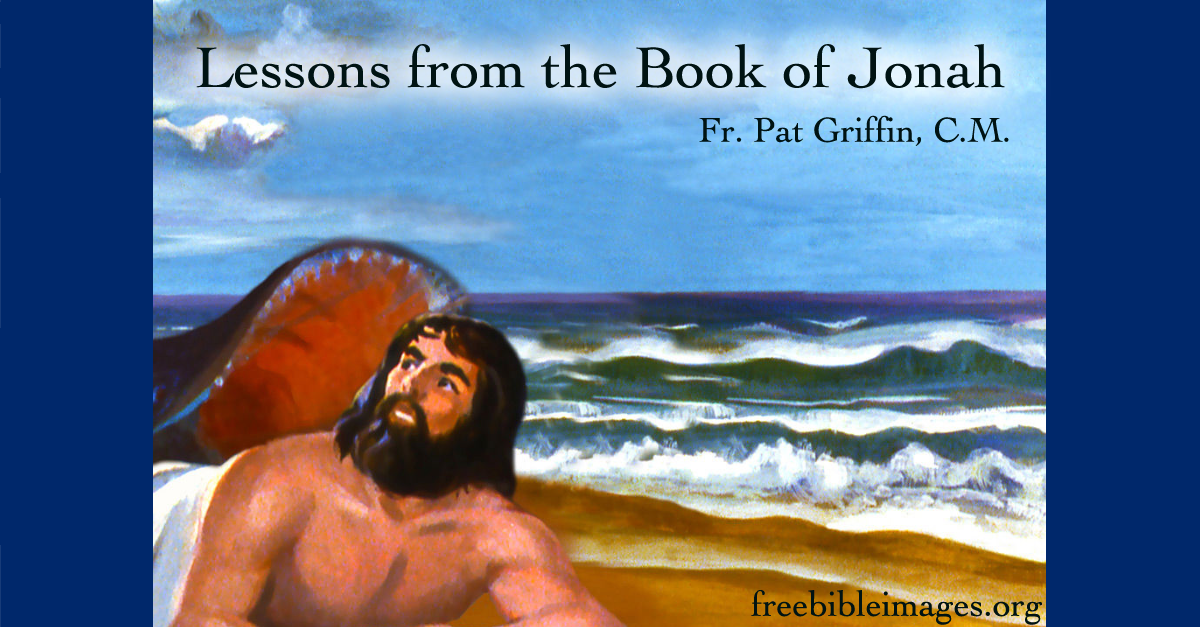Jonah: The Protesting Prophet

Father Pat Griffin continues his series “Considering Consecrated Life” with this reflection on “Jonah: The Protesting Prophet”
For the past two weeks and into this week, the Minor Prophets have provided many of the texts for our reflection at the Eucharist. Haggai, Zechariah, Baruch, Malachi and Joel offer encouragement to follow the Law of the Lord. In the current few days, however, we receive our instruction from the Book of Jonah.
Some phrases in Jonah which capture our attention do so because of their contrary character. We might expect exactly the opposite of what occurs. These passages can hardly be accidents. The author challenges our thinking and invites our reflection on our own attitudes and actions.
At the very outset of the Book, when Jonah receives the call to go to Nineveh, we might expect that this prophet will immediately set out for the place where the Lord wants to send him. No such thing!
This is the word of the LORD that came to Jonah, son of Amittai:
“Set out for the great city of Nineveh, and preach against it;
their wickedness has come up before me.”
But Jonah made ready to flee to Tarshish away from the LORD. (Jonah 1:1-3)
Instead of promptly making plans to carry out the Lord’s bidding, this prophet of the Holy One begins to do the opposite. That certainly seems like strange behavior for a messenger of Israel’s God.
Now, we might think that Jonah fears to go to Nineveh because of the harm that might befall him there. That, however, would not be true. No, Jonah would gladly run to Nineveh, an historic enemy of Israel, with news of its impending doom. Fear of suffering would not enter his head if he could proclaim that “joyful message” to the hated Ninevites, and then witness the Lord God carry out this verdict. No, Jonah’s concern lay in the opposite direction. He feared that the people might repent at his preaching and that the Lord would relent. This reasoning led him to flee to Tarshish. Listen to the way in which he speaks to the Lord:
I knew that you are a gracious and merciful God,
slow to anger, rich in clemency, loathe to punish. (Jonah 4:2)
Those very characteristics which all of us would desire in the Lord’s dealing with us were the ones which Jonah feared would be applied to the Ninevites. Jonah “accuses” the Lord of being compassionate and merciful! The upside-down character of the situation emphasizes the virtue of the Lord in an unusual way.
Thus, when the destruction of a people does not take place, Jonah pouts and even prays for death at the withering of a single plant which gave him shade. This situation provides the Lord with an opportunity to instruct Jonah (and us) as the Book concludes:
[God said to Jonah:]
“Should I not be concerned over Nineveh, the great city,
in which there are more than a hundred and twenty thousand persons
who cannot distinguish their right hand from their left,
not to mention the many cattle?” (Jonah 4:11)
The “one hundred and twenty thousand persons who cannot distinguish their right hand from their left” literally means the small children, but perhaps metaphorically refers to a people’s inability to distinguish good from evil. The seemingly unusual mention of the cattle at the end probably indicates the harm to the rest of creation if the Lord carried out a punishment against humankind. (In the Old Testament, we have already seen how that takes place in the judgment of Adam and Eve and in the story of the flood.)
For those of us in the Vincentian Family and for the consecrated persons among us, the Book of Jonah holds out many lessons. This essay only suggests some of them. We can flee from the call to go where the Lord wants to send us and from the service which the Lord is asking of us. We can be reluctant to seek and foster the good which exists in all our brothers and sisters. We can hesitate to pray for them. And, we can fail to take note of the way in which any suffering of a people first falls upon the children and other innocents.
The Book of Jonah gives its instruction in an interesting story in a negative form. We could also express its teaching in a positive way as evidenced in the lives of Vincent and Louise. As members of the Vincentian Family, we can have an openness to be sent where needed; we can see Christ present in the other; and we can be particularly attentive to the needs of the most fragile (Francis’ message for today). It is a prophetic call, and not a minor one for us.
Tags: Griffin







0 Comments